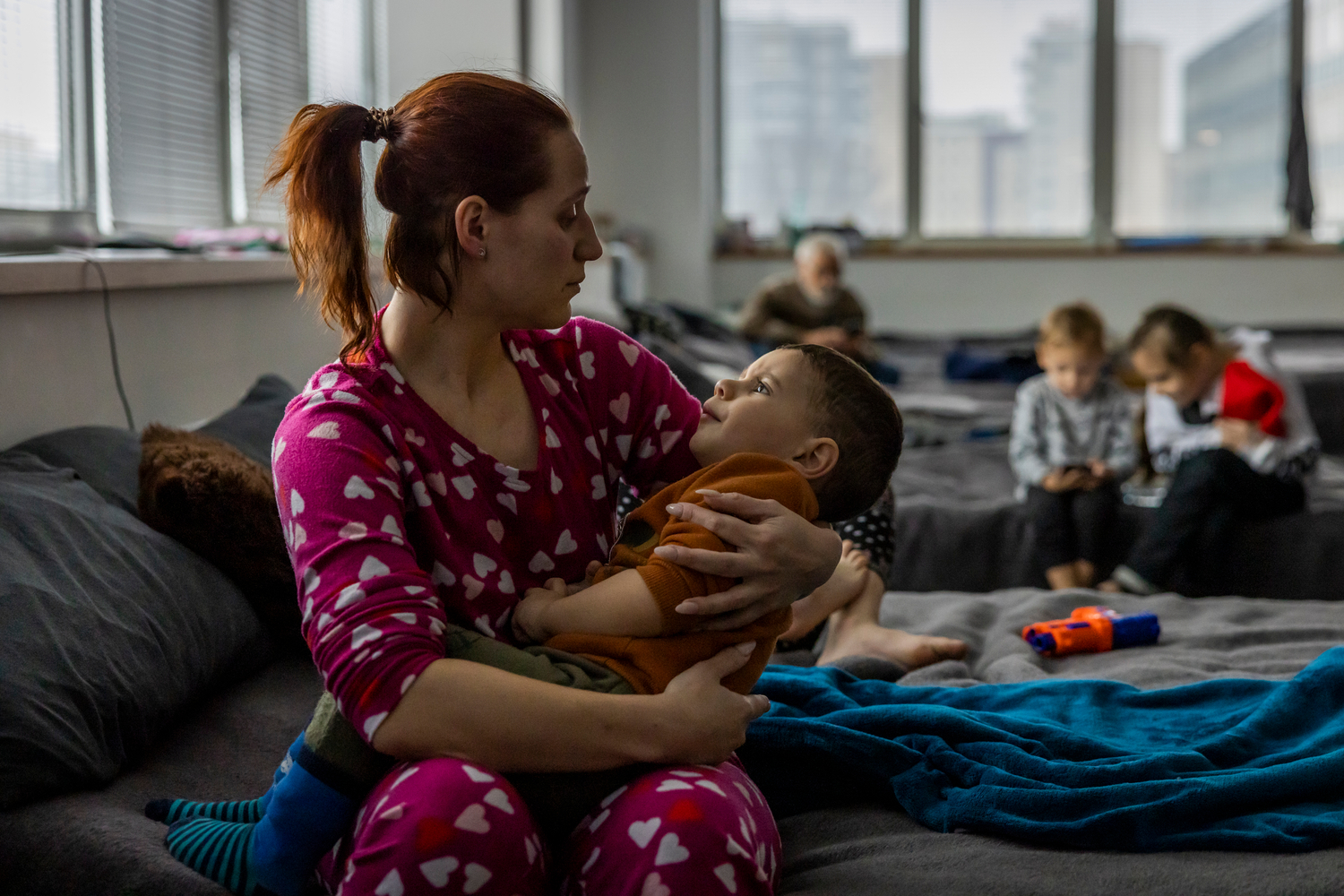UN refugee chief cites pressing needs as those uprooted tops 42 million
UN refugee chief cites pressing needs as those uprooted tops 42 million

WASHINGTON D.C., United States, June 16 (UNHCR) - The UN High Commissioner for Refugees António Guterres urged the international community on Tuesday not to allow the global economic crisis to adversely affect humanitarian aid.
Speaking in Washington's National Press Club at the launch of his UN refugee agency's annual report on refugee trends, Guterres said the situation for humanitarian agencies was "worrisome," and called for greater support on the part of donor countries. "The amounts needed to rescue people," he said, "are less than what is needed to rescue banks."
UNHCR's annual "2008 Global Trends" report shows the number of people forcibly uprooted by conflict and persecution worldwide stood at 42 million at the end of last year amid a sharp slowdown in repatriation and more prolonged conflicts resulting in protracted displacement. The total includes 16 million refugees and asylum seekers and 26 million people uprooted within their own countries.
While highlighting the pressing need for greater funding of humanitarian organizations by wealthy nations, Guterres also cited the demands being placed on countries which are hosting large refugee populations, most of which are in the developing world.
The amounts needed to rescue people are less than what is needed to rescue banks.
High Commissioner António Gutteres
"The overwhelming burden of displacement is borne by developing countries," said Guterres. "Eighty percent of refugees are in the developing world. Generosity and wealth are not proportional to each other."
Although the overall total of 42 million uprooted people at year's end represents a drop of about 700,000 over the previous year, new displacement in 2009 - not reflected in the annual report - has already more than offset the decline.
Among recent and continuing displacement crises, Guterres cited Pakistan, where up to 2 million people have been uprooted by violence between the government and militant forces this year, as "the most challenging protection crisis since Rwanda [in the mid-1990s]."
"The failure to deliver proper humanitarian assistance to the displaced in Pakistan," he said, could have serious security implications.
About 2 million refugees and internally displaced people (IDPs) were able to return home in 2008, according to the UNHCR report, a decline from the previous year. It was the second-lowest repatriation total in 15 years and, in part, reflects the deteriorating security conditions in countries such as Afghanistan and Sudan.
The UNHCR report shows that the number of people the agency cares for globally stood at 10.5 million refugees at the end of 2008 while an additional 14.4 million people were uprooted within their own countries.
In recent years, UNHCR has increasingly been tasked under the UN's humanitarian reform process with providing help to the internally displaced, in addition to its traditional mandate of protecting and assisting refugees who have crossed international borders. Since 2005, the agency has seen the number of IDPs it cares for more than double.
By Tim Irwin In Washington D.C., United States








